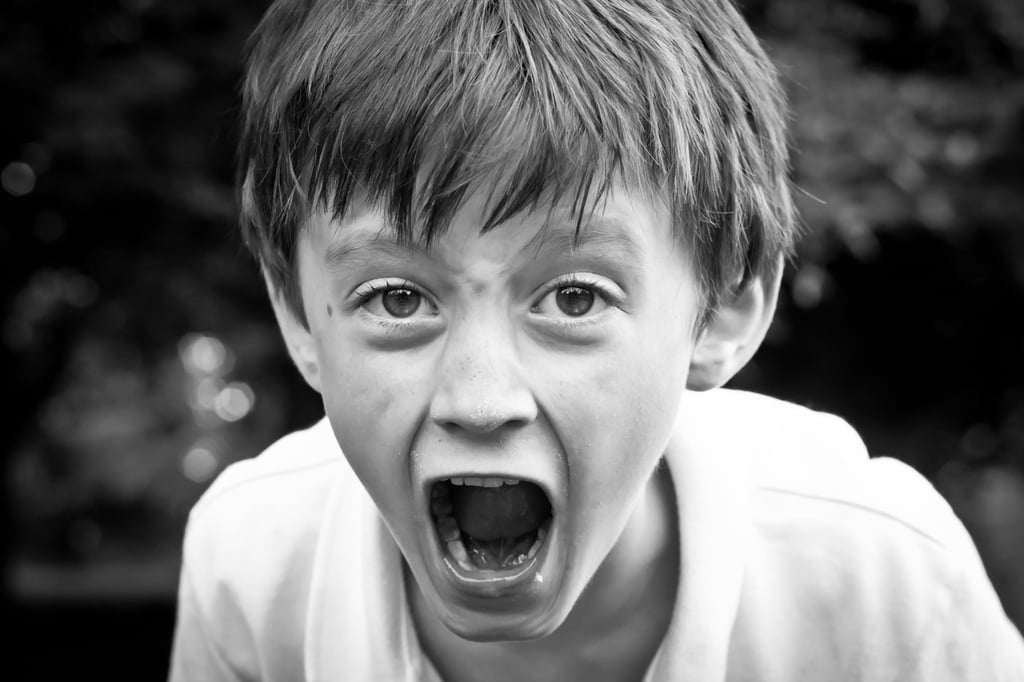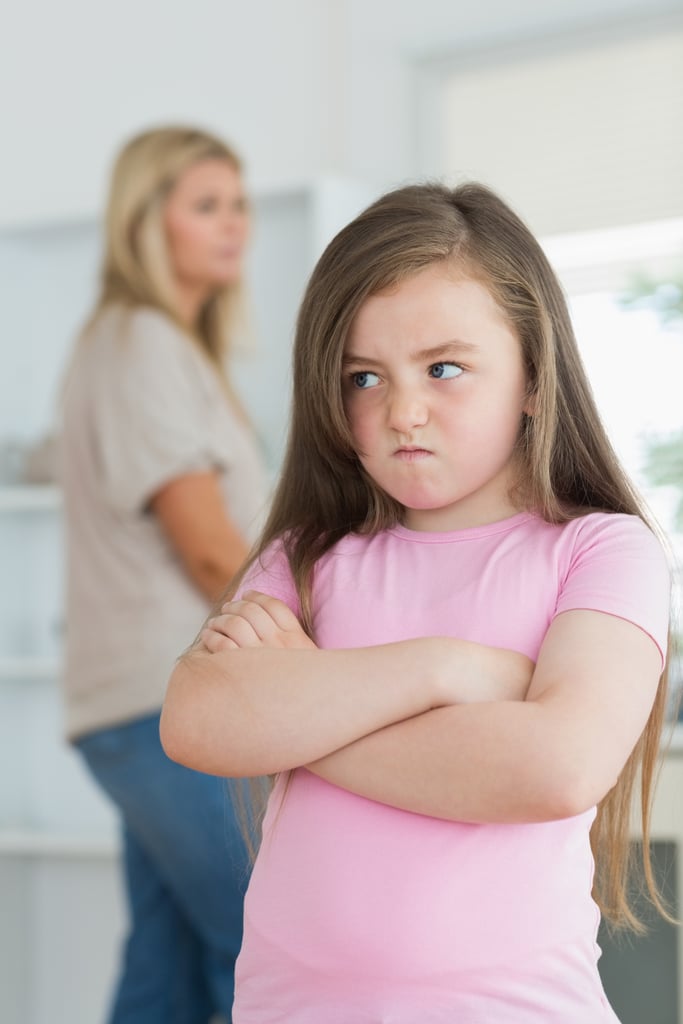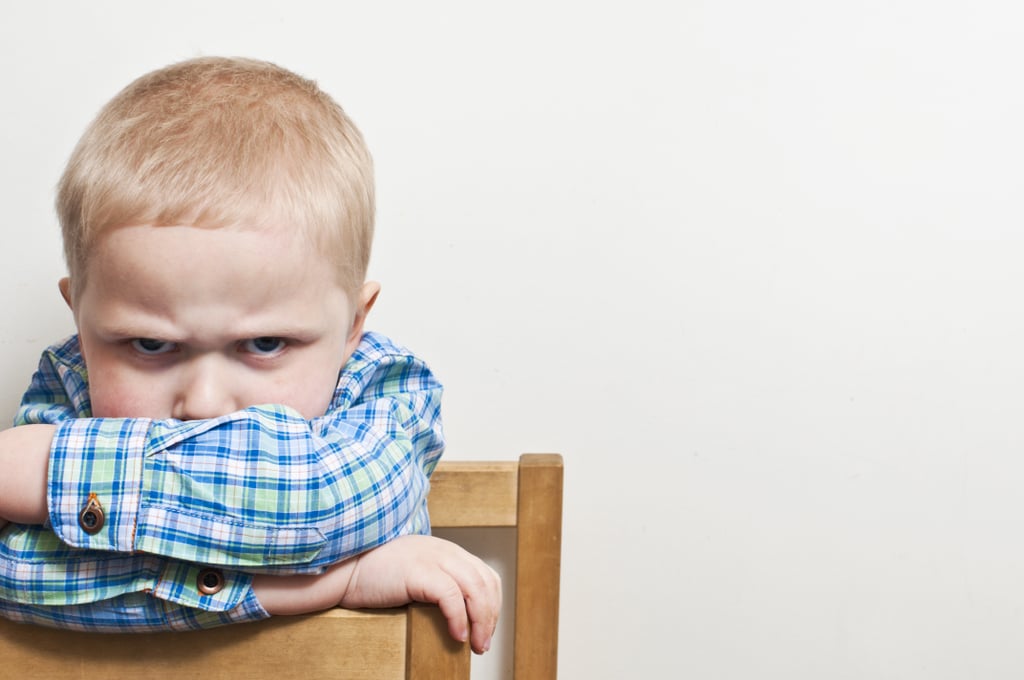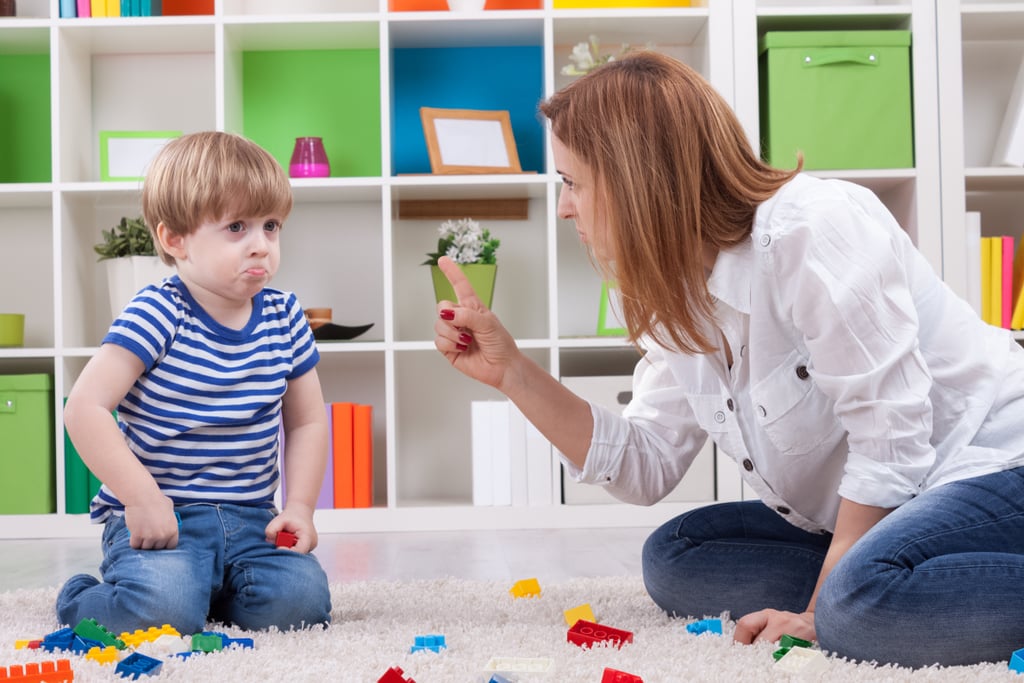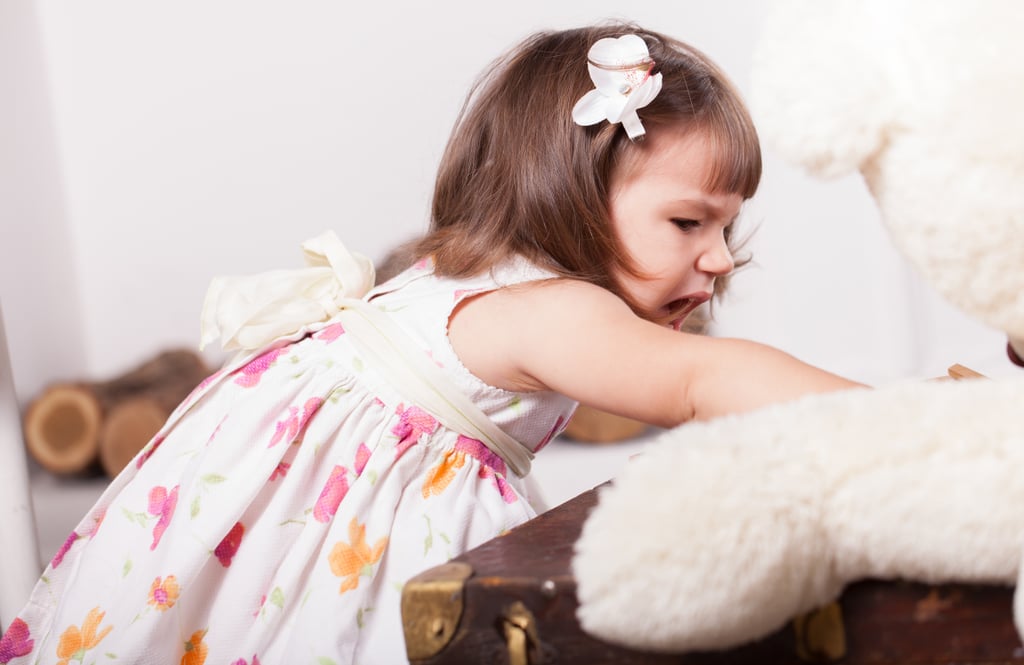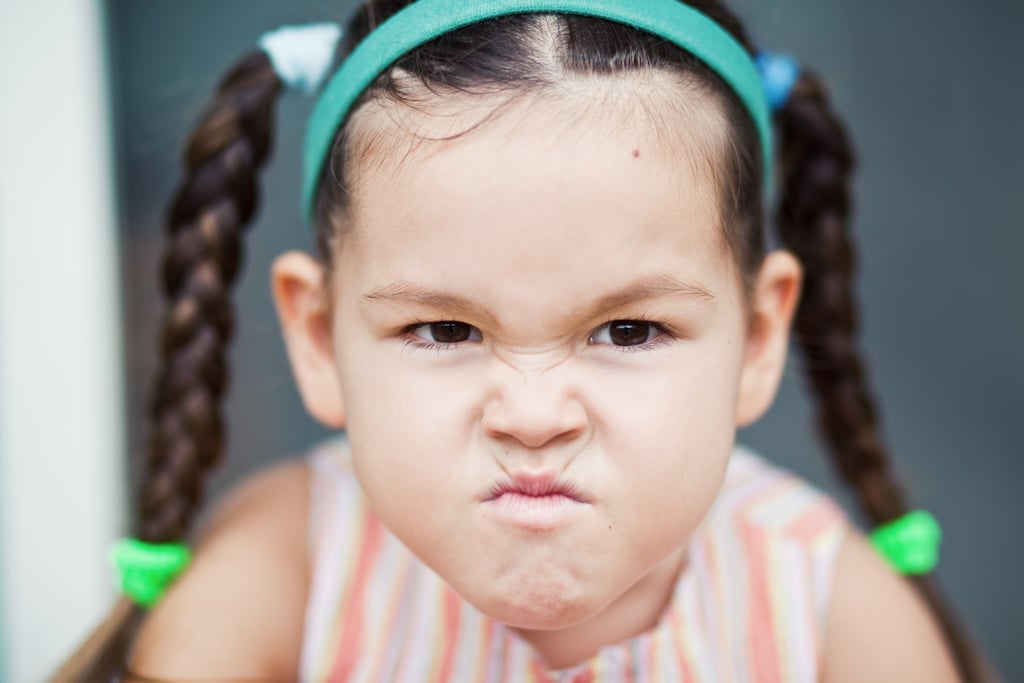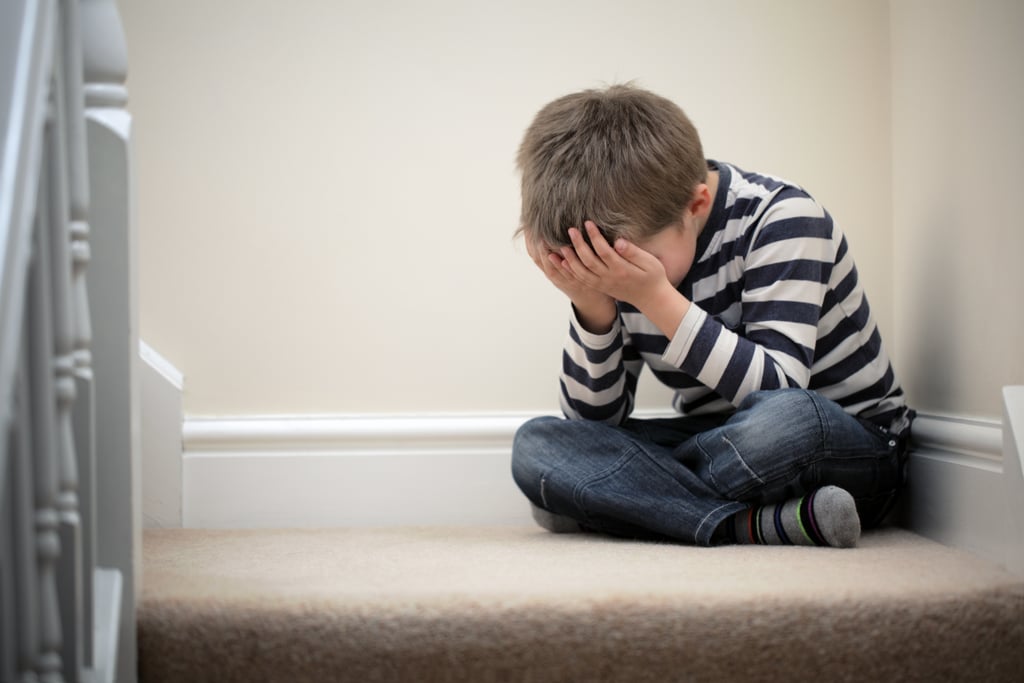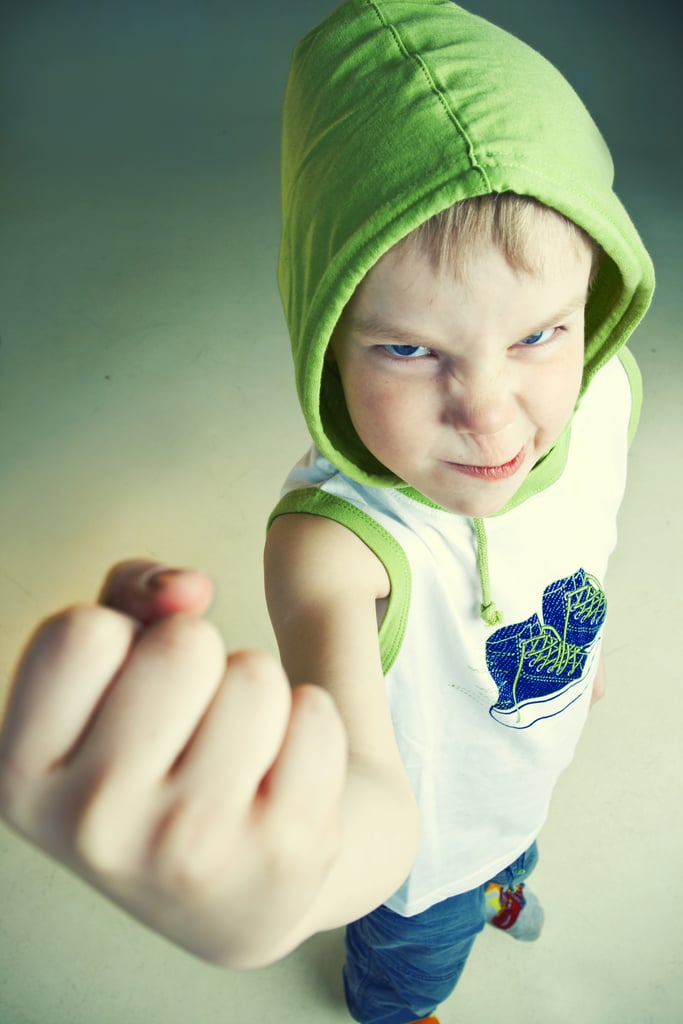No matter how sweet and angelic your child is, there are times you have to do a double take when you catch a glimpse of toddler fury or a surprising amount of rage for an innocent preschooler. And while kicking, screaming, and biting occasionally come with the territory of raising a tiny human, luckily for most, kids typically outgrow these antisocial tendencies and replace aggressive actions with socially appropriate behavior before age 5.
So what if you notice that your child is still displaying confrontational behavior as he or she is getting older? The American Academy of Pediatrics says [1] that learning to manage feelings of anger and coping with frustration are crucial tasks of early childhood. It's common for little ones to struggle when they feel overwhelmed as they start to learn key problem-solving skills, but if they continue to display negative actions, it can lead to serious problems as they grow up.
If your tot displays any of the following nine signs of aggression, it's important to remember that your kid isn't maliciously trying to upset you [2]. It's equally important for parents to remember that their children's behavior is not a direct result of their actions. If you focus on what's frustrating with the situation, it becomes difficult to see when your child is improving — which makes positive progress even harder for your child.
While aggression can be caused by genetics, modeling, and behavioral disorders [3], it's oftentimes a sign of a physiological delay. Kids' developing nervous systems aren't able to control their impulses as much as other children their age. For other kids, their combative outbursts are just an indication that they need to learn and practice new social skills and coping mechanisms.
If you have a rowdy little one on your hands, check out these nine signs of an aggressive child and learn what you can do about it.
They can be verbally forceful.
Screaming and name-calling are an indirect form of aggression. When children become verbally combative, it's a way for them to cope with feelings, like anger or frustration, that they don't know how to otherwise deal with.
They have a hard time controlling their emotions.
When these children get excited or upset, they have a hard time stopping themselves. A child's brain is still developing so they don't have the same ability to control their emotions as adults. This lack of control has also been linked to a less mature nervous system compared to other children their age.
They have difficulties interacting with others at school.
These children may experience social withdrawal or seem to be constantly getting into arguments with teachers and other students. Other children might interpret their behavior as threatening, and if your kid doesn't have the coping mechanisms and proper problem-solving skills to deal with his or her feelings in other ways, it can lead to a damaging cycle.
They have trouble concentrating.
Children who are aggressive also have a loose sense of self control. This causes them to act impulsively, making it difficult for them to sit still for more than a few minutes at a time. While children who are easily distracted and struggle with paying attention can often have difficult parent-child or teacher-child relationships, they will struggle less as they learn how to properly cope with being overwhelmed.
They have problems with self control.
In the short term, aggressive children get what they want. Whether it's cutting in line and getting a faster turn on the swing or screaming until they get their way, kids are often rewarded for their combative acts.
They get physical.
Not only is physical aggression a learned behavior that acts as a way for children to deal with their feelings, but hitting, kicking, and biting are also direct behaviors that elicit attention from parents, teachers, and peers. Aggression is one of the first responses to frustration that a baby learns. These actions are common before a child develops more sophisticated verbal skills to talk about how he or she is feeling. Most children replace these forceful tendencies with socially appropriate behaviors before turning 5 years old.
They can be pretty moody.
Due to their difficulties with impulse control and regulating their emotions, aggressive kiddos can come across as particularly moody and emotional. These children are quick to get agitated and don't have the proper problem-solving skills to effectively (and peacefully!) resolve their feelings once they've been riled up.
They have anxiety.
Some children act out with aggressive tendencies because they feel isolated or struggle when they feel out of control. When these kids feel frightened, they have a hard time dealing with it and turn to more destructive actions. These children need to learn and practice alternative social skills to deal with their anxiety.
They can be a bully at times.
Teasing, spreading rumors, and name-calling, as well as getting physical with peers, are all actions of an aggressive kid. After a few years of displaying inappropriately
aggressive behavior, these children must cope with the negative consequences, including lack of friends and bad reputations.
If any of these signs ring true to your child, here are some helpful tips to change their forceful behavior for the better.
- Look for triggers or patterns when they act out. Is it usually at home or in public? Is it usually a certain time of day? You can't work on breaking the pattern until you can identify the cycle.
- Once you know the triggers, be on the lookout for escalating behaviors.
- Remove the child from the situation before things evolve into a fight. Changing the environment can help them regain composure.
- Provide structure with a daily routine. Predictability will help your little one feel more in control.
- For older children, instill logical consequences for each behavior and work on teaching them the difference between assertion and aggression. Working on age-appropriate coping mechanisms to help kids learn appropriate ways of getting what they want and how to handle it when they can't, is essential for improvement.
